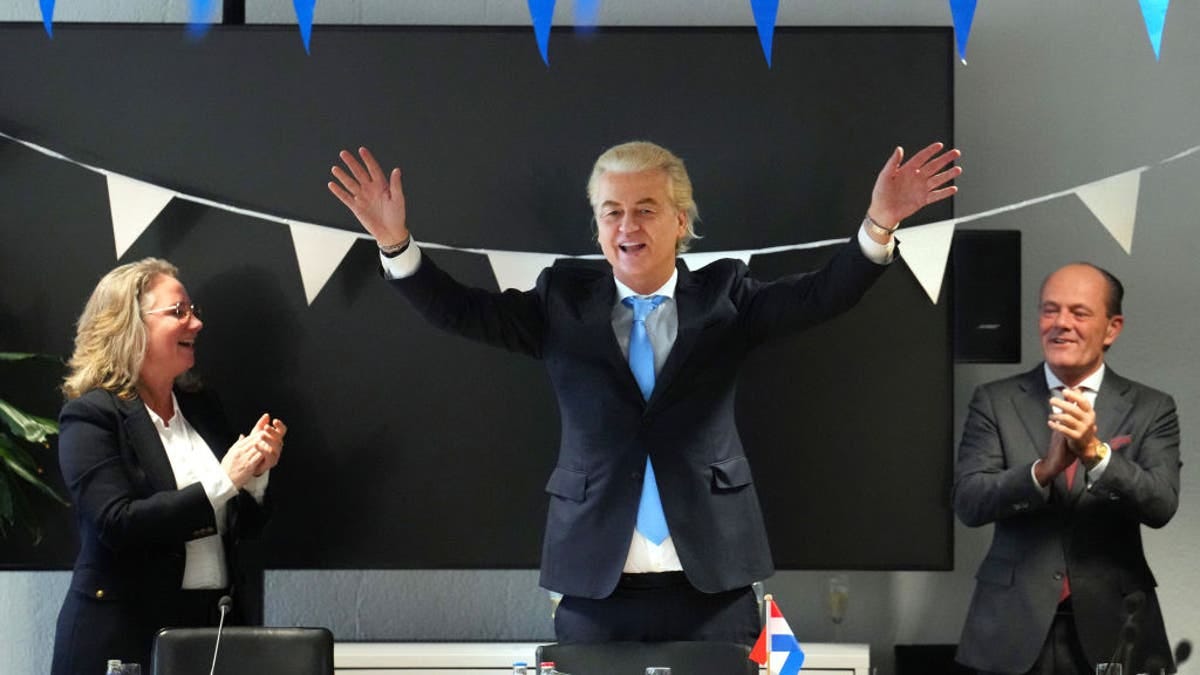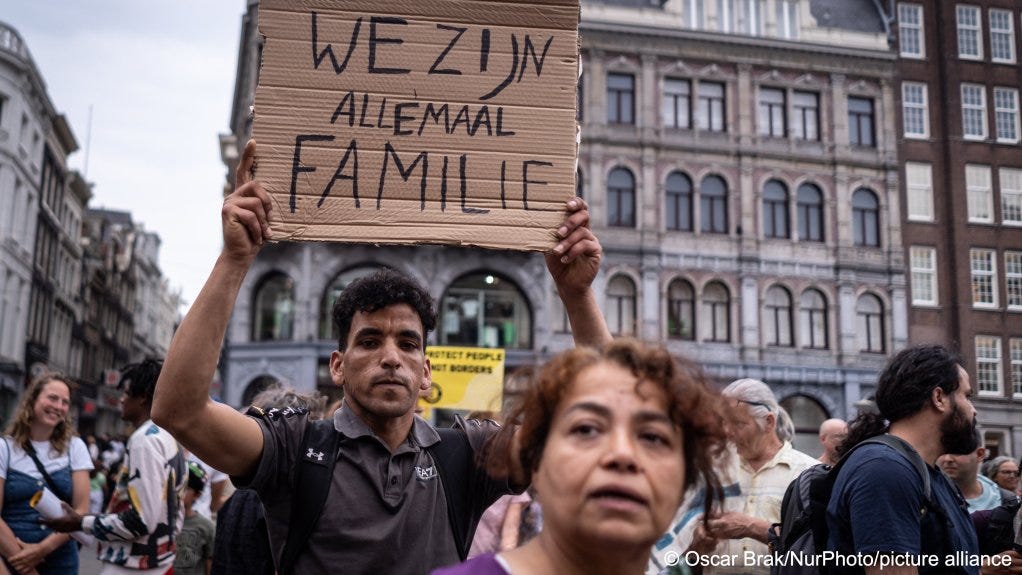The Netherlands heads for a clash with EU
Tough choices are still choices: the Netherlands is not a hostage but may need to consider how immigration policy fits into its membership of the EU
It is almost six months since the general election in the Netherlands which upended conventional wisdom and expectations, and saw the Party for Freedom (Partij voor de Vrijheid, PVV) more than double its representation to take 37 seats in the 150-strong House of Representatives. As head of the largest party, the controversial Geert Wilders was suddenly in the driving seat to form a coalition government. This was problematic, as New Social Contract (Nieuw Sociaal Contract, NSC) and the People’s Party for Freedom and Democracy (Volkspartij voor Vrijheid en Democratie, VVD) were reluctant even to contemplate working with the PVV because of its stance on immigration and cohesion.
In February, the NSC’s leader, Pieter Omtzigt, withdrew from coalition talks altogether, scotching the prospect of a quadripartite administration of the PVV, the NSC, the VVD and the conservative Farmer-Citizen Movement (BoerBurgerBeweging, BBB). Now, however, the coalition has at length been reassembled, but with the agreement that the new government will be made up partly of politicians and partly of figures from outside, and that Wilders will not be prime minister. So far only a 26-page “headline” accord has been published, and candidates for ministerial office, including the premiership, are still to be announced.
The new government will, however, pursue a tough approach to immigration, one of the most emotive issues of the campaign, and particularly on migrant workers. It is expected to scrap permanent residency for migrants and an unpopular scheme which saw them settled across rural areas, as well as restricting the immigration of family members. In pursuance of all of this, the new government will seek to declare an “asylum crisis”, suspend processing of asylum applications for two years and withdraw from the European Union Pact on Migration and Asylum. But this can only be done with the agreement of the EU, or the Netherlands will be in breach of its membership obligations.
It is not yet clear how this will be received by the European Commission. Denmark has decided not to engage in the migration pact, but it has enjoyed an opt-out from measures in the area of freedom, security and justice (AFSJ) since the early 1990s. Derogations from EU-wide agreements would usually be negotiated alongside the measure itself rather than afterwards, and Eric Mamer, spokesman for the Commission said stiffly, “You cannot opt out of EU legislation... we are working on the basis of existing treaties and existing legislation”. He added “We will wait to see what a possible new Dutch government will formally propose”.
A narrative is already being created that the EU is forbidding the Netherlands from implementing these measures, demonstrating the fact that the country is under the control of a supranational tyranny. Some commentators have predicted that the Commission will be unwilling to agree to a suspension of the pact, that the new government will then implement its policies under domestic Dutch law and the incompatibility will end up in the courts. For some denizens of social media, this is proof of what they had always believed. “Sally Waldegrave” tweeted:
Geert should keep kicking back against the EU until they kick the Netherlands out, the overlords then have no power to dictate their terms of withdrawal and the Dutch will be free to determine their own future.
Meanwhile, “100pessimistisk” speculated:
Well, we will see what happens now with the new government. Maybe the Netherlands will be free again...
“Horse Lord King” took it a step further.
Wonderful news from the Netherlands for the Dutch people, and hope that the Dutch and all European peoples might soon become free from the tyrannical, genocidal mandatory asylum policies of Brussels.
“Ian” struck an ironic, historical note.
Once upon a time (1830s), it was Belgium that wanted to be free from the clutches of the Kingdom of the Netherlands.
Now, I’m not suggesting that any of these people are representative of a majority opinion or anything like it. But it is a persistent trope and one which fits into a wider context: essentially, there is an “establishment”, defined how you wish, which has independent and perpetual interests, and it will prevent elected politicians from taking steps which run counter to those interests, even if that means thereby frustrating the “will of the people”.
This is not fundamentally a new argument. Eurosceptics, in the United Kingdom and elsewhere, have portrayed the European Commission as an unelected and unaccountable bureaucracy for decades, and, to an extent, they were and are quite right. The president of the Commission is nominated by the European Council and approved by a vote of the European Parliament, and the Parliament also examines and approves the College of Commissioners en bloc, who are then ratified by the Council. So there is an element of indirect election for the president and the commissioners, though the outcome of the votes, as is often the case in Brussels, tends to be a foregone conclusion dependent on behind-the-scenes negotiations. However, once the Commission is in place for its five-year term, there are few serious weapons of accountability. It can be dismissed as a whole by the European Parliament on a vote on no confidence, but this requires a two-thirds majority, and this procedure has never been used successfully to remove a Commission.
I am certainly not here to mount a defence of the European Union, its policies or the institutions in Brussels. But the narrative of coercion does seem to me to be one step too high up the scale of drama. The EU is an international organisation based on treaties, and its whole purpose is to create policies which apply across Europe and apply to all member states. Frequently, those policies may not be to the obvious advantage of all member states. That may well be the case with the Netherlands’ desire to derogate from the migration pact.
But clubs have rules. Members are free to debate the rules before they are introduced, and there is nothing to stop them trying to persuade other members to change them after implementation, if they can win that argument. That was essentially the basis of David Cameron’s attempt to renegotiate the United Kingdom’s membership in 2015-16, the outcome of which was published in February 2016.
In the end, though, if a single member state does not like a rule, and cannot make a persuasive change, then it has two choices: accept that it is in a majoritarian organisation which legislates for the common rather than the individual good, or leave. By tortuous means, that was the route the UK chose after the Brexit referendum in 2016. And it is a route open to the Netherlands as to any member state.
Should the Netherlands seek to leave the European Union? That is a matter for its government and its people. But let’s make sure we’re framing this accurately: no EU member state is a hostage, and it is an inevitable feature of international organisations that an issue may arise on which, to quote Mr Spock, the good of the many is deemed to outweigh the good of the few, or of the one. That does not end the matter, or subject the one to some kind of tyranny, but it does mean that the one—in this case the Netherlands—has to accept that it has reached a fork in the road, where it chooses between a policy it wishes to pursue, and the wider issue of its membership of an international organisation.
The French socialist Pierre Mendès France is probably too often quoted but I will do it anyway: to govern is to choose. In matters of great political importance, which immigration clearly represents to the new government of the Netherlands and its electorate, those choices will be difficult, and will often be between two unpalatable options. But they are choices nonetheless, and it is the duty of leaders to make them. If instead we try to duck decisions which may painful and instead say we are powerless or frustrated by some illegitimate actor in the process, that is not leadership, but its abdication, its moral opposite. It is an act of cowardice and deceit.





